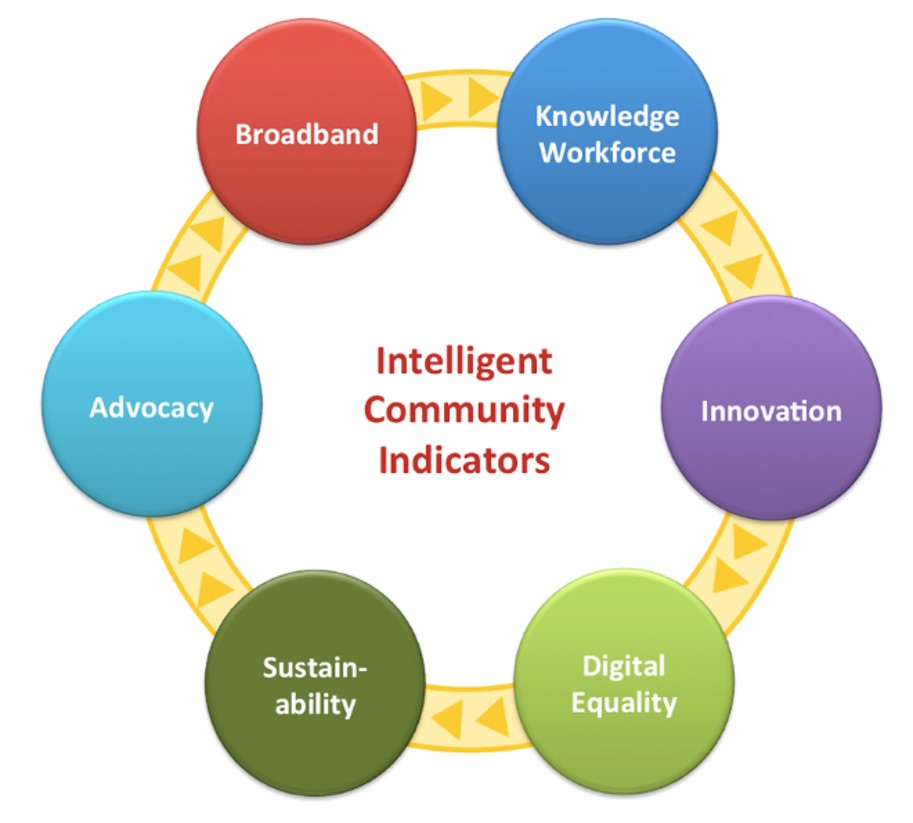Unlocking Africa’s Intelligence
by Lou Zacharilla
New York City, November 4, 2019--The boost in non-stop airline traffic between the USA and Africa is on the rise and access to the continent and its cities has as much to do with technology as it has to do with demand. According to travel writer Shannon Sims, developments in plane construction makes it possible to fly longer routes. And ultra long-haul flights, such as next month’s launch of a non-stop flight from Newark Liberty Airport to Capetown will provide access to South Africa three times per week. Distances of 9,500 miles (15,300 kilometers) covered in less than 15 hours on a non-stop flight is truly a testament and deserves a genuflection to the wonders of engineering.
My goodness it almost reminds you of that ultimate non-stop wonder of global access: satellite communications!
Access has long been the buzzword for the digital age.
And as we know from the satellite industry – at least if you have been paying attention to Mark Dankberg, Greg Wyler and yours truly - once you provide people with access things happen.
Mostly good things.
Airline access to Africa predicated on Boeing’s engineering technology relies on satellite technology. Planes don’t fly very far or very well without it. (https://www.newtec.eu/article/video/sspi-better-satellite-world-how-satellite-brings-you-a-better-flight) But people living in Africa are entirely dependent in the long-term on the growth of cities and local economies. These will depend on another satellite offering. This is the one that - if the smart money is really that smart - will deliver some new cargo: a promising future. Because the future depends on African nations educating, training and retaining its best and brightest.
Low Earth Orbit satellites and their promise of total connectivity and access to enough broadband to plug people into the global economy are the promised platform for the advent of what I call “Intelligent Africa.”
During my panel at the Satellite Innovation conference in Mountain View, California last month, the audience, when polled, agreed that five or fewer of the new constellations would survive. We agreed that broadband would continue to be the largest driver of volume growth, as Euroconsult reported. After all, it already accounts for 70% of the total capacity in use.
Falling capacity pricing is another matter!
 But will falling prices have unintended consequences? Access to broadband in Africa, however it arrives, could result in the transformation of places that follow solid economic development principles. If the public and private sectors work to design policies and plans that lend themselves to using education, knowledge, culture and local autonomy in cities and region as the tools for excavating human intelligence, economic output and social stability could appear within a generation or faster.
But will falling prices have unintended consequences? Access to broadband in Africa, however it arrives, could result in the transformation of places that follow solid economic development principles. If the public and private sectors work to design policies and plans that lend themselves to using education, knowledge, culture and local autonomy in cities and region as the tools for excavating human intelligence, economic output and social stability could appear within a generation or faster.
Nairobi County is one example of a place that has used this idea to advance. It has tried to make access part of its economic development strategy and resurgence. https://www.intelligentcommunity.org/nairobi_county Similar to what we see in Mexico, with ventures like ViaSat’s Community WiFi initiative, Nairboi embraced the beginning of a market economy over 10 years ago, which permitted the private and public sectors to make progress.
Kenya’s leading industrialist, Manilal Chandaria, stepped forward and founded a business school and incubation center at several universities. Microsoft and Intel worked with an association of schools to bundle devices and education apps, which were consistent with the national government’s 20-year plan emphasizing the role of IT in education. It set itself up for a future where IoT and connected devices would assist in the management of its economy and region.
In 2014 Nairobi County embraced the six indicators of the Intelligent Community Method, the first of which is to ensure that it work toward a robust broadband and telecom infrastructure. The other five indicators include more “elite” steps on the path to at minimum smart city status, including digital equality and access for all as well as the creation of a knowledge-based workforce. This is where educational initiative falls and where LEOs may have a more prominent role going forward.
Because the first step is access; access for schools, hospitals, entrepreneurs and, local governments, which provide services. The net result of this will allow people to stay home – and not flee to London or the USA for economic opportunity. Once again, satellites are being called upon to be part of this evolution. Stay tuned as LEOs either make it or break……
To meet people who are doing work like this I encourage you to attend this year’s Better Satellite World Awards dinner and networking event in London on 2 December. https://uk.sspi.org/events/the-better-satellite-world-awards-dinner-2019
-----------------------------------------
 Lou Zacharilla is the Director of Innovation and Development of the Space and Satellite Professionals International (SSPI). He can be reached at: LZacharilla@sspi.org
Lou Zacharilla is the Director of Innovation and Development of the Space and Satellite Professionals International (SSPI). He can be reached at: LZacharilla@sspi.org






